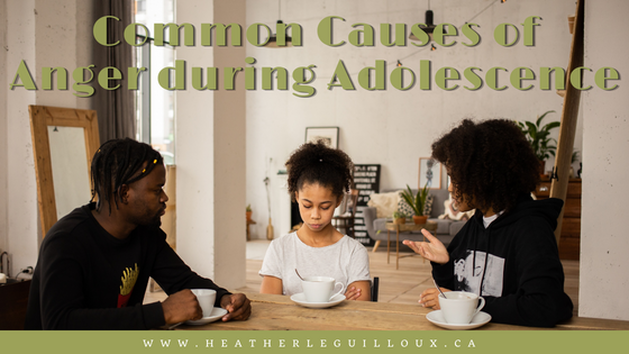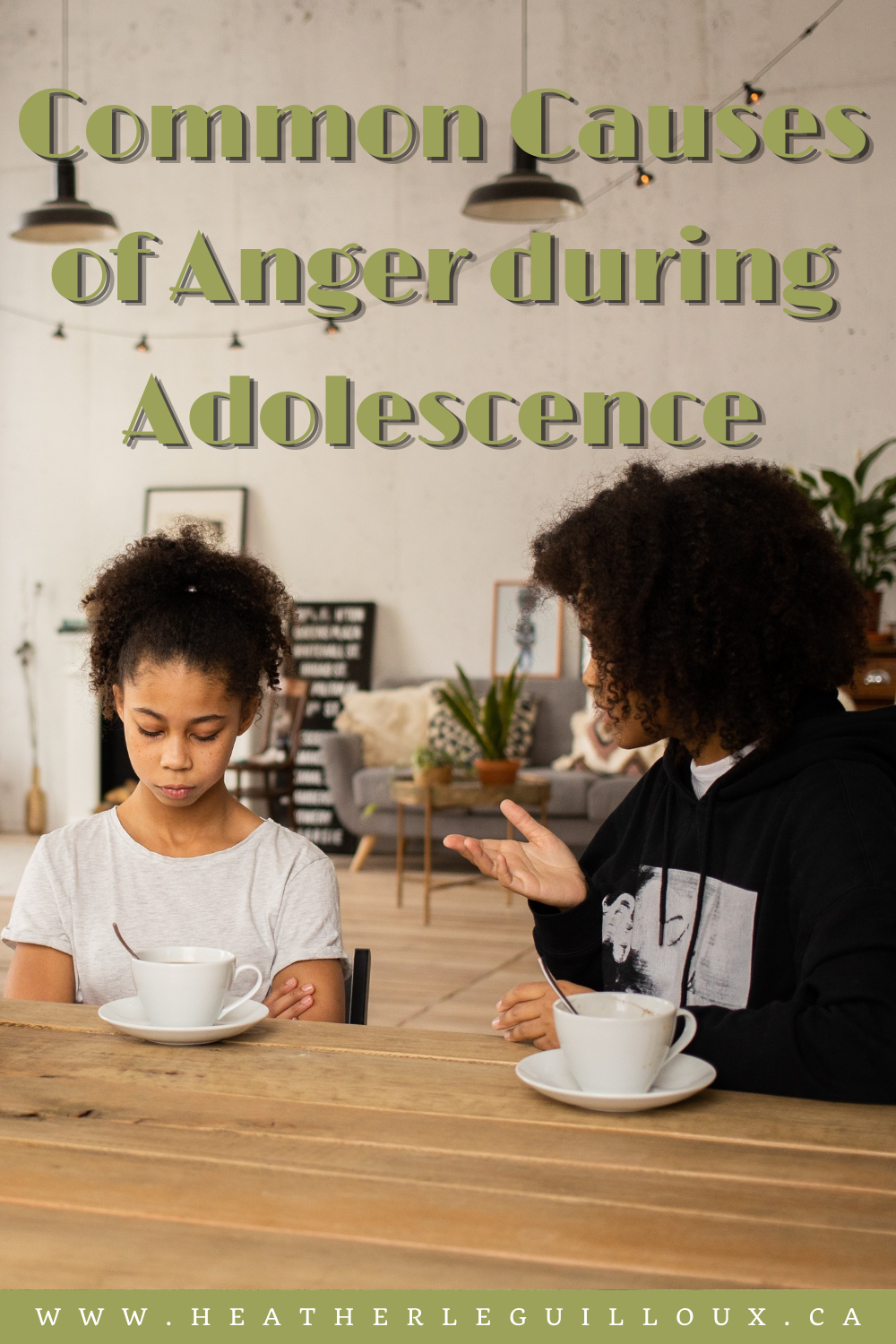|
|The adolescent stage of life is comes with many new emotions, changes and new discoveries about oneself and the world. Adolescence is the time for sexual maturation and growth spurts, and it comes with its emotional rollercoaster. During this period, teenagers often deal with strong, volatile emotions, one of which is anger. According to the Canadian Mental Health Association, teenage anger may appear suddenly, surprising others with its intensity. Moreover, anger often masks other underlying insecurities. So, do you have an angry teen? If yes, here are some common causes of their anger and how to overcome them. Please note: This collaborative article does not contain healthcare or therapeutic advice. If you are concerned about your health or well-being, speak with a health professional or visit your nearest medical facility in an emergency. The links in this article may be affiliate links that I will be compensated for at no additional cost to you. Common Causes of Anger during Adolescence1. Family issues While no one desires family issues, they can happen at some point. Conflicts, estrangement and even divorce can stress teens, leading to anger. Moreover, conflicts between parents and teens are fairly common, as teens question rules as they grow and become more independent. For instance, they may become defiant and rebellious when their parents are too restrictive. And if left unresolved, it can lead to feelings of anger and lack of respect. Fortunately, you can resolve this with the right steps. While it might be tempting to talk back at them for their sudden rage, you want to avoid that. Instead, try to resolve the issue when you both are calm to achieve the best results. As a tip, prepare your speech and choose your words carefully to avoid another outburst of rage. You’ll also find it helpful to treat your teen with respect as you converse by listening to them, maintaining eye contact and staying calm. By all means, avoid interrupting them and avoid condemning speeches. Instead, calmly explain to them why things are happening in your family. Here are more helpful tips to help your teen resolve family conflicts. 2. Low self-esteem As kids transition into adolescence, they become more aware of their appearance and personalities. However, it’s also easier for them to develop low self-esteem for many reasons. Sometimes, they may have a negative body image due to unhealthy comparisons with their peers. Also, poor academic performance, social interaction struggles and negative thought patterns can contribute to low self-esteem. Low self-esteem can cause negative emotions like anger, shame, or anxiety if left unaddressed. Likewise, they risk adopting unhealthy behaviours like earlier sexual activity and drug abuse. Teen substance abuse stats indicate that 60% of Canadian drug users are 15-24 years old. Therefore, helping your teen overcome low self-esteem makes sense. You can begin by looking out for other signs. In addition to anger, your teen may exhibit isolation, negative talk and eating disorders. You may also notice that they constantly apologize and avoid competition. After noticing these signs, you can build their self-esteem by affirming their positive traits. You’ll also find it helpful to gently correct their mistakes instead of criticizing them harshly. Your teen can also work with youth counselling professionals for the best results. Admittedly, bullying is common among children and teens. And this can trigger anxiety, fear, and insecurity in the bullied. Moreover, bullied teens are likelier to be angry constantly, as they feel helpless to avoid the situation. If your teen returns home with unexplained bruises and damaged belongings, they may be experiencing bullying. Reduced enthusiasm for school, appetite loss and withdrawal from social activities are signs worth considering. You can help your teen overcome bullying by teaching them not to react in fear. Also, encourage them to speak to an adult in school to hold the bully accountable. You can involve a police officer and other law authorities if bullying persists. Related Articles: The links on this page may be embedded with affiliate links that I am compensated for at no additional cost to you.
0 Comments
Your comment will be posted after it is approved.
Leave a Reply. |
Welcome to the blog!↓ That's me, Heather. :)
MENTAL HEALTH RESOURCE VAULTGreat!Check your email for instructions on how to access the Mental Health Resource Vault. Categories
All
Popular Posts// 25 Positive Mindset Quotes
// Self-Care Bullet Journal Spreads // 7 Ways Your Physical Health is Connected to Your Mental Health |






 RSS Feed
RSS Feed
















